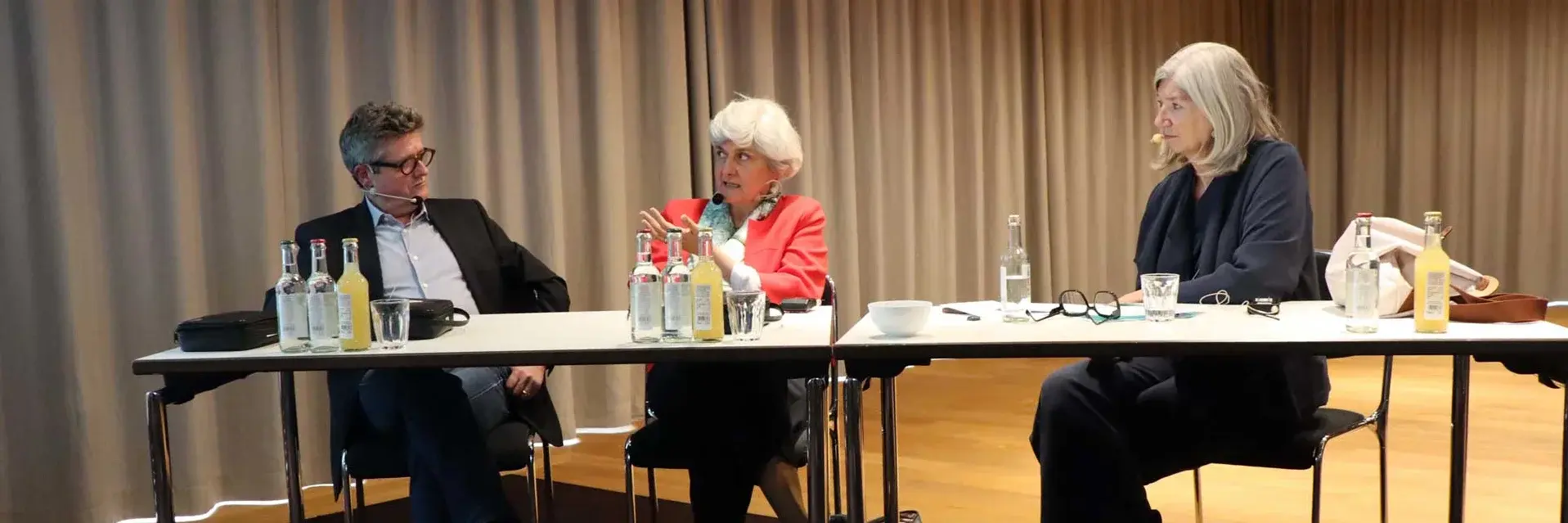“We must defend security and our values in the face of the double turning point.” With these impressive words, Sylvie Goulard, French political scientist, former French Minister of Defence and former Member of the European Parliament, emphasizes the enormous challenge that Europe is currently facing. She shares the stage with Dr. Friedrich Glauner from the World Ethics Institute and Carla Sappok, SWR correspondent in Brussels. Dr. Franziska Brantner, Federal Chairwoman of the Green Party, participates online from Berlin.
Goulard also recalls Richard von Weizsäcker's legendary speech in 1985 on the 40th anniversary of the end of the war. “This generation believed that cooperation was worth more than confrontation. It is not worth to complain constantly. Rather, we have a moral obligation not to squander the legacy of European cooperation." Dr. Glauner agrees: “We have the longest period of peace in Europe for 2500 years. This shows that we can only exist in the cooperative sphere. If we can continue to do that, we could become a magnet for the world.”
Taking the European Idea Seriously Again
But this peace has been taken for granted for too long. Dr. Brantner is certain of this and at the same time urgently calls for contemporary witnesses of the Second World War to have their say and for European symbols to be strengthened. She observes with concern the trend of glorifying the strong and despising the weak and thus contradicting fundamental Christian values.
In order to counteract the strengthening of these right-wing extremist forces, Europe must take itself seriously again, says Goulard. It would be a disaster if the countries allowed themselves to be driven apart.
And Sappok hopes that the double turning point will be a catalyst for Europe, which has been in a deep sleep for too long. Dr. Glauner adds: “Not changing means that radical change is in the offing.”
Living Reality Instead of Utopia
After an hour of lively on-stage discussion, the guests take part in the debate with constructive comments and critical questions. But in the end, the dialog returns to its starting point: does Europe represent a utopia? In the sense of the word, a place that does not exist? Everyone agrees that a united Europe is a lived and hard-won reality. Despite many weaknesses, this union is the only construct in world history that has found something to unite individual states by preserving their sovereignty. This privilege must be protected and defended by all means.
